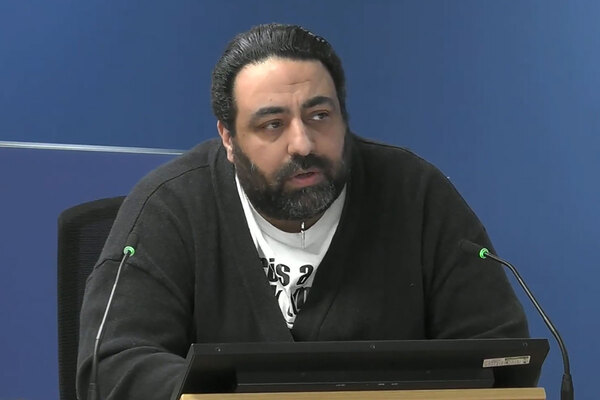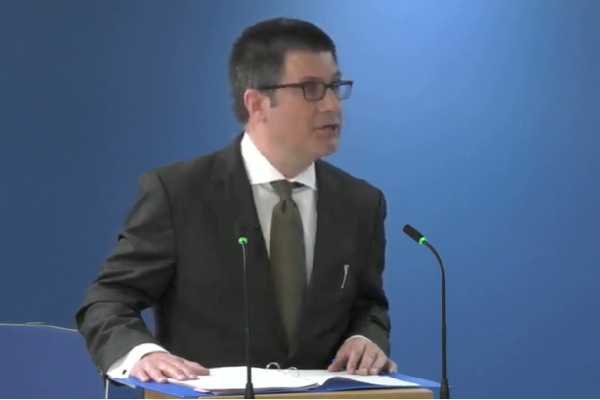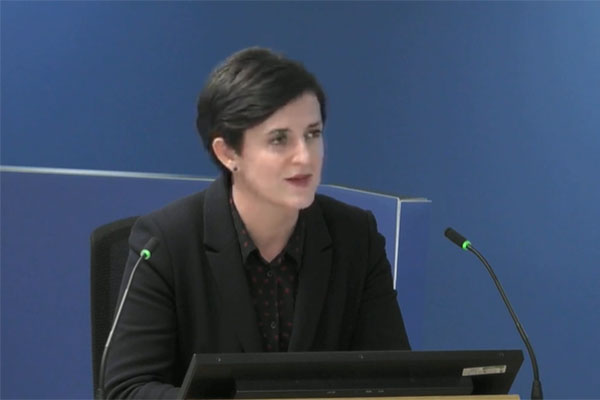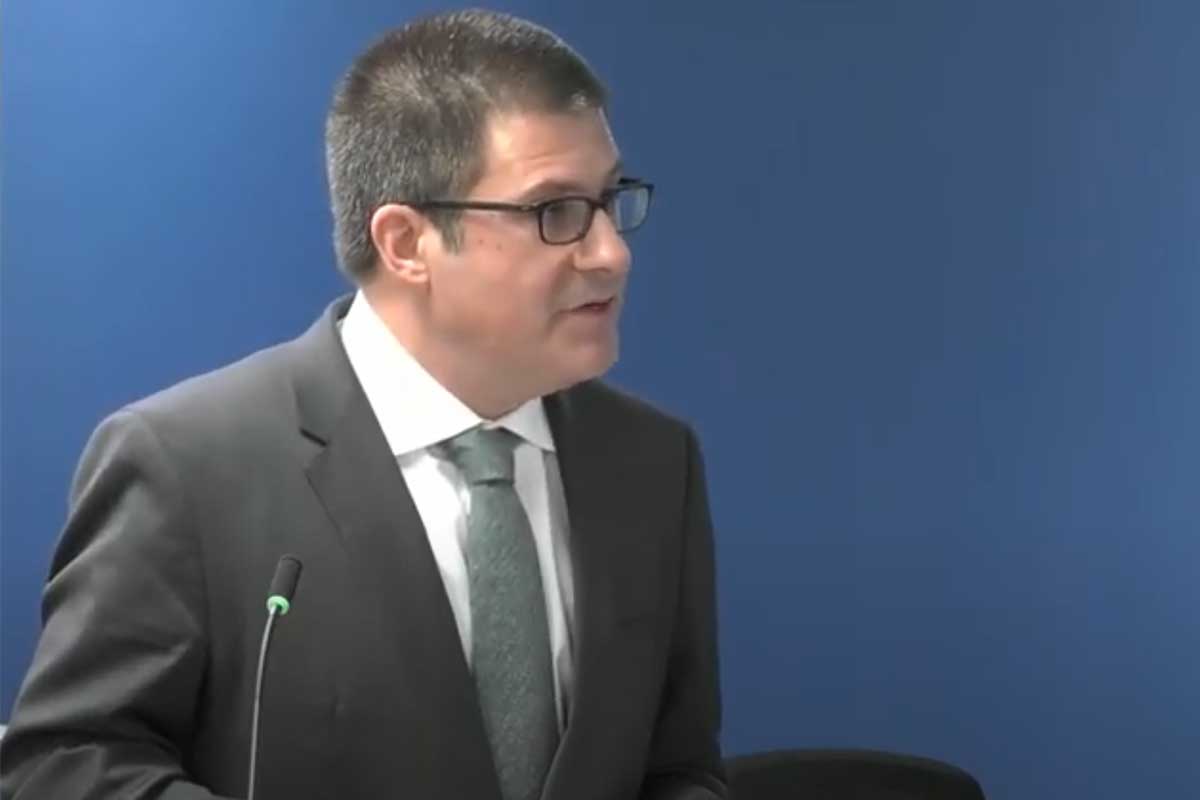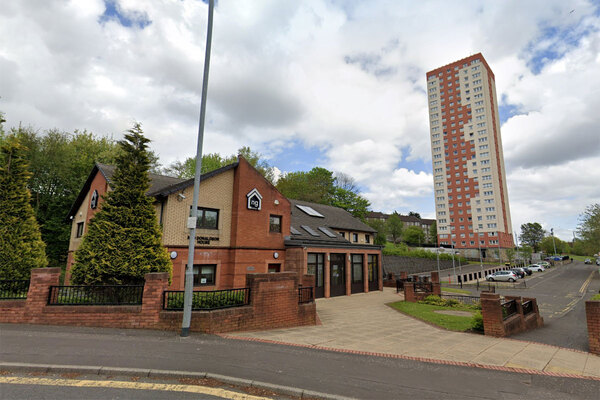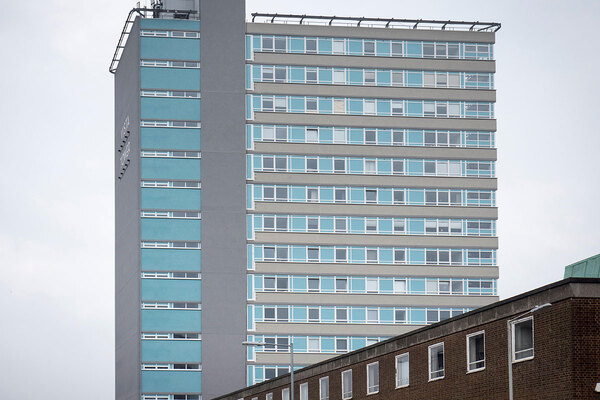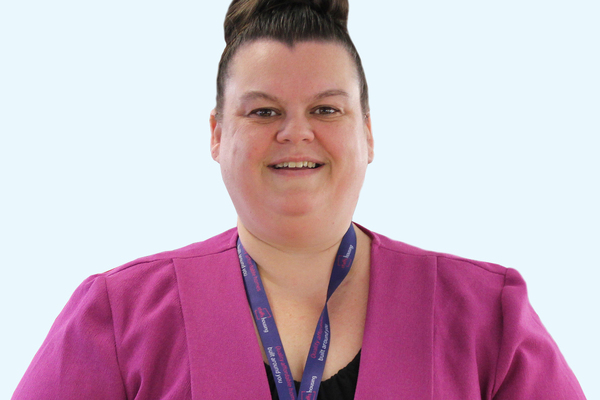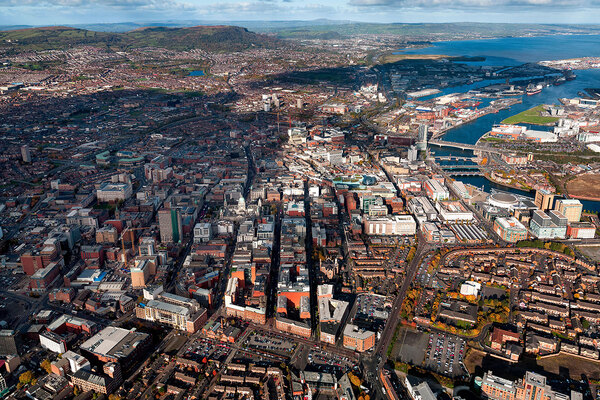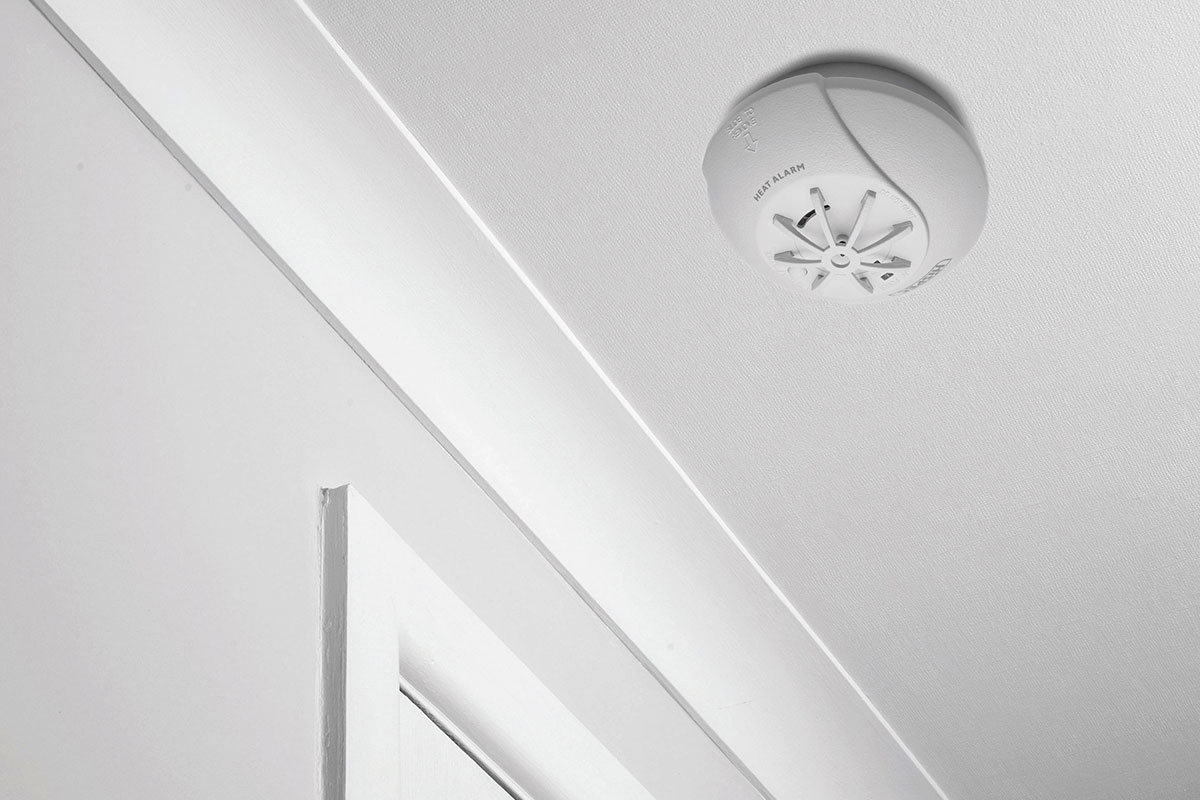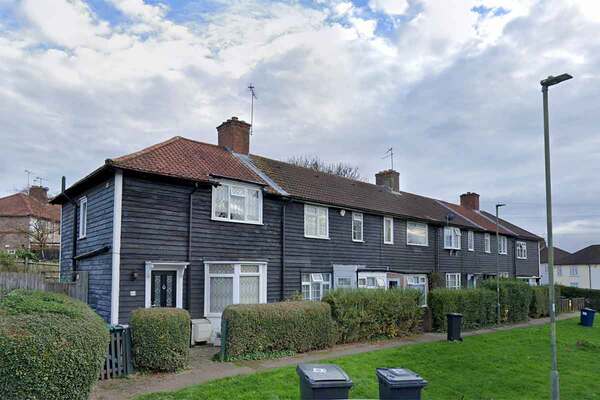‘Islamophobic’ police document predicted ‘crime and disorder’ after Grenfell fire due to ‘Muslim background’ of victims
The Metropolitan Police has been accused of Islamophobia by lawyers acting for the Grenfell Tower community, as a result of a document that predicted “crime and disorder” in the days after the blaze due to the fact that “the majority of those affected are believed to be coming from a Muslim cultural background”.
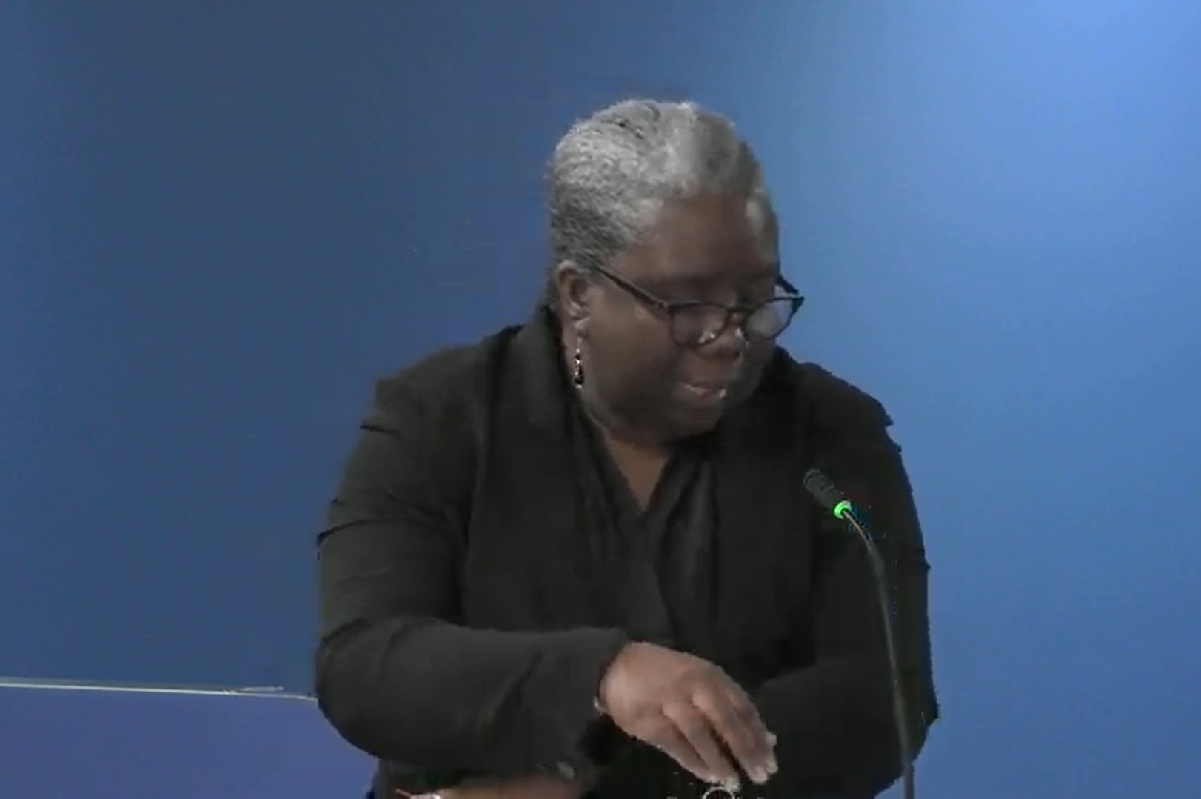
The note – which assessed risks of “community tension” four days after the fire – warned of outbreaks of crime if the death toll was released, noting that it was expected to “rise substantially”.
The revelation came as the Grenfell Tower Inquiry heard closing statements from lawyers covering the evidence about the immediate aftermath of the fire.
Allison Munroe QC, appearing for one group of bereaved and survivors, said that the issue of racial discrimination remained “the elephant in the room” and that issues of race were “inextricably linked” with Grenfell.
She said the panel “needed to look no further” for evidence of this than a ‘Grenfell Community Impact Assessment’ that was produced by Kensington & Chelsea Police on 18 June 2017 – four days after the fire.
Ms Munroe read from the document, which said: “Imminent national, international or local events taken alone or in combination are expected to lead to outbreaks of crime and/or disorder within hours.
“There is an expectation that the death toll from the fire could rise substantially. And with the cause unknown, any subsequent disclosure would have the impact of community tensions, especially when the majority of those affected are believed to be coming from a Muslim cultural background combined with the incident occurring during the holy month of Ramadan.”
“Members of the panel, this is Islamophobia. It’s racism. It is the elephant staring back at us in the room,” Ms Munroe said.
The inquiry heard no live oral evidence from Metropolitan Police officers during its investigation of these issues. Despite the force’s influential role in the response it falls outside the inquiry’s terms of reference.
A barrister appearing on behalf of the police later told the inquiry that the force "would strongly refute any suggestion that Islamophobia affected its response to the tragedy".
Ms Munroe also drew attention to “slurs” by staff at the Royal Borough of Kensington and Chelsea (RBKC), which included warnings of “great concern over community tension” with “hostile residents very vocal in negative comments towards the incident” in the days after the fire.
The inquiry has heard evidence that armed police were stationed at the entrance to an official rest centre to support survivors, and those who were searching for missing loved ones were shouted at and threatened with arrest by police.
“This focus on public order detracted resources and focus away from the relief effort,” said Ms Munroe. “This we find extraordinary, inexcusable and unforgivable.”
She added: “Racism and discrimination, we say, played a very real part in the response to this tragedy.”
Danny Friedman QC, appearing for another group of bereaved and survivors, said that the authorities involved in the response were “more concerned about an uprising or unrest than they were about looking after families”.
He said this was demonstrated by the police risk assessment, but also the fact that council workers who attended the scene hid their lanyards, out of fear of being identified.
“For several days, the Westway [where council support was being provided] remained a site of intimidation, rather than refuge,” he said.
He added: “In the post-Brexit electoral storm of June 2017, [the response] also spoke to fears of broader collapse of social control.”
Ms Munroe noted that RBKC, despite being one of the wealthiest boroughs in London, has a large population of black and minority ethnic residents and areas of extreme deprivation.
“The institutional indifference was there. The discrimination was there, and it was very real,” she said.
She cited issues such as the lack of communication with those who did not have English as a first language, including a failure to provide counsellors who spoke the language of the bereaved and survivors.
There was also a lack of Halal food for Muslim survivors, or flexibility regarding their need to observe the fasting during Ramadan.
She also raised issues of disability discrimination. “People who were frightened, they were grieving for friends, relatives, neighbours. They were bereft of their worldly possessions. These residents were placed nonetheless in hotels and high floors in rooms that are not adapted for their most basic means. There was no consideration of mobility issues, or non-visible disabilities,” she said.
“Families found themselves in hotel rooms with no facilities to sterilise bottles and cots if they had small children, babies and infants,” she added. “School-aged children, some of whom had exams to sit, had no uniforms to go to school in. They had no room to study. Often families were sharing one hotel room, so teenagers had no privacy and no space.”
Ms Munroe also drew attention to one of her clients – who was 80 at the time of the fire – and was evacuated from her home in the low rises connected to Grenfell.
She was then placed into temporary housing with fire safety issues so serious that it had to be decanted.
“Sadly she died in January of this year at the age of 85, four-and-a-half years after the fire, awaiting still placement in sheltered accommodation,” she said.
Mr Friedman particularly criticised Laura Johnson, then director of housing at RBKC, for her efforts to provide rehousing.
“Everyday moral restraints make it hard for people, especially public servants, to admit inhumanity or comprehend that inhumanity is not restricted to bad people,” he said. “And yet, it occurs in bureaucracies and businesses when basic moral restraints become neutralised or otherwise compromised.
“Consider Laura Johnson. She presided over the assignment of residents into hotels with no regard to their human well-being once warehoused in this way.
“Johnson’s account is about the movement of bodies and things, not people. And she did this in a fashion that no one would ever do to their own family or friend or anyone whose lives they knew anything about.”
Ms Munroe also criticised the emergency planning of RBKC, saying there was “a systemic lack of internal oversight of the contingency arrangements”.
“There was a lack of investment in contingency planning, under-resourcing, and a culture steeped in ‘this is how it’s done’ and a resistance to change,” she said.
She said that despite the admission of some fault in RBKC’s closing statement, its witnesses had continued to evade responsibility for the response.
“If lessons are to be learned, from institutional failings, and meaningful change implemented, we as a society must cleanse ourselves of the cancerous culture of institutional defensiveness and bypassing,” she said. “Candour cannot be lip service, it must constitute the framework of public accountability.”
Mr Friedman specifically criticised RBKC chief executive Nicholas Holgate, who declined to call for outside support in the hours after the fire because “that looks like we can’t cope”.
“When he protests that it was not part of his make-up as a career civil servant… what he really means is ‘I am not the kind of person who would want to be seen as refusing help for those reasons’. However, out of arrogance and defensiveness, that is just what he did,” said Mr Friedman.
“The truth is many years preparing for an emergency could not ready the borough for anything more than a bus crash on the high street or a minor fire,” he added.
He said that central government was “ridiculously hands-off” with Mr Holgate in the early stages, not even noticing his absence from a key conference call on the morning of the fire.
“Based on what this inquiry has learned across its modules, subsidiarity [which sees local government take control of the response and leaves central government with a simple oversight role] is another species of unaccountable and unmonitored localism,” Mr Friedman said.
He said this was demonstrated by the fact that mass displacement was not planned for at a central government level, and was essentially reliant on local authorities to provide accommodation.
“In one swoop of doctrine, the major reality of any disaster, that those with less financial means will suffer most, gets entirely contracted out of central government responsibility, and it does so by design,” he said.
“Subsidiarity turned out to be to civil contingency what stay put is to fire and rescues. It’s a policy assumption that was allowed to become imprisoning as an article of faith.”
He called for the inquiry to recommend changes in this area. “The fact that this inquiry is not a commission into social housing, or the future of the welfare state, should not stop it from reporting on how government became anti-social in its indifference, and how that indifferenced cause the people who survived or lost loved ones in this fire to pay such a terrible price,” he said.
“[Bereaved and survivors] have described the traumatic experience for them, their families, and importantly their children that will never go away,” he added. “The damage wreaked a disproportionate impact on working-class people, predominantly of colour, who did not have the money, networks or options others have. It is for that reason that the aftermath, and its harm, has become a social justice issue for [bereaved and survivors] that stands side by side with the causes of the fire.”
Ms Munroe said: “No community should have to go through such painful and degrading experiences, as our clients did in the aftermath of this fire.
“When they should have been protected and enveloped in the protective arms of the state, they were treated as a hindrance – second-class citizens who did not warrant the care, kindness and support that they should have been given immediately and unconditionally.”
Ms Munroe closed her statement with the words of Hanan Wahabi, who escaped the tower but lost her brother and his family in the blaze.
“We were treated like numbers, not humans,” she said. “This is something that we still feel today in my experience in the eyes of local and central government. Our Grenfell and North Kensington community are second class, the people with needs and problems.
“I cannot help but feel that had our community lived in a different part of the borough, on the more affluent side, had we been from a different class, had we been less ethnic, the response in the aftermath would have been immediate. It would have been present. It would have been felt. We may be different. We may be diverse, but we are people.”
Andrew Warnock QC, appearing for the Metropolitan Police, disputed the evidence of Claire Richards, chief executive of the Clement James Centre, that firearms officers were present at the Westway, which was being used as a rest center.
“The MPS did not deploy firearms officers to police the Westway Centre, and the MPS is unable to account for what Claire Richards but no other witness of which the MPs is aware believes she saw in that regard,” he said.
He said uniformed officers were deployed to the centre, but said they had an “important role”, which included “helping to keep order generally and managing the intrusive presence of the press both inside and outside the centre”.
Addressing the risk assessment, he added: “This was not a matter it explored in the evidence… The writer of the risk assessment has not been called to give evidence.
“We draw your attention to the fact that following on from the passage cited by Ms Munroe from that risk assessment the assessment said that, quote, ‘community leaders from local mosques have been contacted and are working with the police to support those affected as are community leaders from other faith groups’.
“The MPS sought to work in a positive way with all those affected by the tragedy. Whilst it will not have got everything right, it would strongly refute any suggestion that Islamophobia affected its response to the tragedy.”
Appearing for RBKC, James Maxwell-Scott QC accepted several failings in its response and apologised on its behalf.
He said that the borough’s emergency command centre should have been open earlier than it was and that it should have been more “organised and efficient”.
He also accepted that the council should have deployed staff to ‘rest centres’ earlier and that it “failed to have in place an adequate system for registering the details of individuals”.
He said that Mr Holgate should have handed over command to London-wide organisations earlier.
He also repeated admissions that RBKC made in its opening statement, which included a failure to provide “greater oversight… of the council's emergency response capability” and a lack of “clear and consistent communications” in the days after the fire.
However, he added: “It would be unwise to assume that everything would have been fine if the council had performed to an adequate level.”
Reading from a statement given by the council’s current leader Elizabeth Campbell, he added: “I am deeply sorry for the council's failings and the suffering that so many people experienced at Grenfell and in the aftermath.”
The inquiry continues.
Sign up for our weekly Grenfell Inquiry newsletter
Each week we send out a newsletter rounding up the key news from the Grenfell Inquiry, along with the headlines from the week
Already have an account? Click here to manage your newsletters
